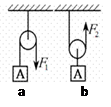Americans are often contrasted with the rest of the world in terms of material possessions. We are accused of being materialistic, gadget crazy. And, as a matter of fact, we have developed material things for some very interesting reasons. Lacking a fixed class system and having all extremely mobile population, Americans have become highly sensitive to how others make use of material possessions. We use everything from clothes to houses as a highly evolved and complex means of ascertaining each other’s status. Ours is a rapidly shifting system in which both styles and people move up or down. For example:
The Cadillac (卡迪拉克) ad men feel that not only is it natural but quite insightful of them to show a picture of a Cadillac and a well-turned out gentleman in his early fifties opening the door. The caption (标题) underneath reads, "You already know a great deal about this man. "
Following this same pattern, the head of a big union spends an excess of $100, 000 furnishing his office so that the president of United States Steel cannot look down on him. Good materials, large space, and the proper surroundings signify that the people who occupy the premises (建筑物及其周围所属土地) are solid citizens, that they are dependable and successful.
The French, English, and the Germans have entirely different ways of using their material possessions. What stands for the height of dependability and respectability with the English would be old-fashioned and backward to us. The Japanese take pride in often inexpensive but tasteful arrangements that are used to produce the proper emotional setting.
Middle East businessmen look for something else-family, connections, friendship. They do not use the furnishings of their office as part of their status system; nor do they expect to impress a client by these means or to fool a banker into lending more money than he should. They like good things, too, but feel that they, as persons, should be known and not judged solely by what the public sees.
One of the most common criticisms of American relations abroad, both commercial and governmental, is that we usually think in terms of material things. "Money talks," says the American, who goes on talking the language of money abroad, in the belief that money talks the same language all over the world. A common practice in the United States is to try to buy loyalty with high salaries. In foreign countries, this maneuver almost never works, for money and material possessions stand for something different there from they do in America.
It is implied in the passage that ().
A. English people prefer old-fashioned things
B. Japanese pay more attention to emotional rather than material value of their furnishings
C. Middle East businessmen value friendship and don’t like good material things
D. the French and Germans use material possession in the same way as the English

 比较机械效率大小。a图中使用的是定滑轮,不省力,不计绳重和摩擦,拉力F1=G,b图中使用的是动滑轮,能省一半力,不计绳重和摩擦,拉力
比较机械效率大小。a图中使用的是定滑轮,不省力,不计绳重和摩擦,拉力F1=G,b图中使用的是动滑轮,能省一半力,不计绳重和摩擦,拉力 ,∵G动远小于G,∴
,∵G动远小于G,∴ ,即拉力F1大于F2,不计绳重和摩擦,所以a图中拉力F1做的功:W1总=F1s=Gh,b图中拉力F2移动的距离:s=2h,拉力F2做的功:
,即拉力F1大于F2,不计绳重和摩擦,所以a图中拉力F1做的功:W1总=F1s=Gh,b图中拉力F2移动的距离:s=2h,拉力F2做的功: ,∴W1<W2;将相同的重物提升相同的高度,根据公式W有用=Gh可知,拉力做的有用功是相同的;根据机械效率公式
,∴W1<W2;将相同的重物提升相同的高度,根据公式W有用=Gh可知,拉力做的有用功是相同的;根据机械效率公式 可知,在有用功相同的情况下,机械效率和总功大小成反比,由上面的分析可知b图中拉力F2做的总功大于a图中拉力F1做的总功,所以b图滑轮的机械效率小于a图滑轮的机械效率。
可知,在有用功相同的情况下,机械效率和总功大小成反比,由上面的分析可知b图中拉力F2做的总功大于a图中拉力F1做的总功,所以b图滑轮的机械效率小于a图滑轮的机械效率。